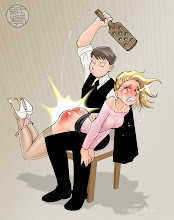A Supreme Case Against Sotomayor
By INVESTOR'S BUSINESS DAILY Posted Monday, June 29, 2009 4:20 PM PT
Judiciary: The Supreme Court's overturning of high-court nominee Sonia Sotomayor's ruling in the New Haven firefighter case exposes what lies at the core of her misguided philosophy: stark racial favoritism.
Thanks to the court's ruling Monday in Ricci v. DeStefano, all the YouTube video clips from Judge Sotomayor's old speeches and conferences take on a clearer meaning now.
Her claims that she was cheated when she took the racially skewed SATs, her contention that a Latina judge is morally superior to a white male judge, her mock sotto-voce declaration that appellate courts make policy — they have all been distilled and disposed of in one shot by the high court majority.
The court ruled 5-4 that the city of New Haven was guilty of reverse discrimination. Fearing lawsuits, New Haven had thrown out the results of fire department exams it conducted after only two Hispanics and no blacks from its firefighter ranks scored high enough to warrant promotions. It got sued anyway, as 18 firefighters claimed they were victims of reverse discrimination.
A three-judge panel of the 2nd Circuit Court of Appeals, including Judge Sotomayor, sided with the city. One of Sotomayor's fellow 2nd District judges — Clinton appointee Jose Cabranes — charged that the panel's Lilliputian opinion contained no "clear statement of either the claims raised by the plaintiffs or the issues on appeal," plus "no reference whatsoever to the constitutional claims at the core of this case."
As Justice Kennedy's opinion noted, "there is no evidence — let alone the required strong basis in evidence — that the tests were flawed because they were not job-related or because other equally valid and less discriminatory tests were available to the City." He concluded that New Haven had violated Title VII of the Civil Rights Act, which forbids employer discrimination.
But what need is there for pesky things like evidence when a judge has "empathy" — the quality that President Obama said was so important in a Supreme Court justice? A justice can sit back and declare that in her view the members of a downtrodden minority group are more worthy of favors than those in the majority — appellate court policymaking at its purest (more properly known as judicial imperialism).
And wasn't that exactly the approach of Justice Ruth Bader Ginsburg, who took the extraordinary step of reading her dissent from the bench on Monday?
"By order of this Court," she complained, "New Haven, a city in which African-Americans and Hispanics account for nearly 60% of the population, must today be served — as it was in the days of undisguised discrimination — by a fire department in which members of racial and ethnic minorities are rarely seen in command positions."
In other words, qualifications and excellence are secondary at best — just get your city services to reflect the racial makeup of the population, or else. Race is the paramount consideration, now and forever.
As Justice Samuel Alito noted, the whole process was knee-deep in corrupt, racially motivated influence.
"Almost as soon as the city disclosed the racial makeup of the list of firefighters who scored the highest on the exam," Alito points out, "the city administration was lobbied by an influential community leader to scrap the test results, and the city administration decided on that course of action before making any real assessment of the possibility of a disparate-impact violation."
That "leader" was the Rev. Boise Kimber, a personal ally of seven-term New Haven Mayor John DeStefano who, as Alito noted, once took to the television airwaves and "threatened a race riot during the murder trial of the black man arrested for killing white Yalie Christian Prince. He continues to call whites racist if they question his actions."
In 2002, Mayor DeStefano made Kimber chairman of the city's Board of Fire Commissioners, in spite of his lack of fire department or municipal management experience.
Apparently, none of this matters to judicial activists like Judge Sotomayor or Justice Ginsburg and the three other unreconstructed liberals on the high court.
What does matter is treating people as members of ethnic groups rather than individuals — a vice that has caused untold suffering throughout American history, and which we should long since have transcended.
Subscribe to:
Post Comments (Atom)

No comments:
Post a Comment